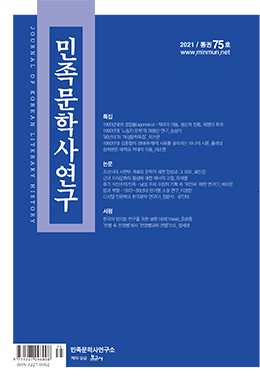본 연구는 한국의 민주화운동 및 2010년대 이후 홍콩, 미얀마에서 이루어진 민주화운동과 관련해, 서로 다른 지역에서 일어난 민주화운동의 기억이 어떻게 서로를 참조하고 있는지를 살펴보고, 일방향적 참조가 아닌 상호간의 연대가 가능한 조건을 영화 및 미디어의 재현 분석을 통해 모색해보고자 한다. 그동안 아시아 민중들의 정치 투쟁에 대한 비교연구는 각각의 사례들이 어떻게 상호 교섭하여 새로운 상호 참조의 장을 만들어내고 있는가에 대한 연구보다 하나의 사례가 다른 사례에 어떻게 적용되고 있는가에 관한 연구가 주를 이루었다. 예를 들면 홍콩의 사례와 미얀마의 사례에서 보여지듯 이들은 80년 5월의 광주, 87년 6월 민주항쟁, 그리고 2016년의 촛불과 종종 비교된다. 비슷하게 대만에서는 천안문 광장과 홍콩의 사례가 자신들에 대한 중국의 억압을 연상시키는 것이었다. 여기에서 한국의 민주주의의 경험은 종종 이들 국가들의 미래로 그려진다. 그러나 이러한 연상작용을 통한 연대나 아시아의 민주화 시위에 대한 한국 민주화 운동의 영향력을 강조하는 태도는 상호간의 민주화운동을 존중하고 상호 참조가 되기보다, ‘한국의 과거가 이들 아시아의 현재 혹은 미래’로 재현되며 다른 아시아 국가를 타자화하고, 국가주의를 강화하는 경향을 띠기도 한다. 따라서 본 연구에서는 한국과 홍콩, 미얀마의 민주화운동을 중심으로 먼저 한국이 홍콩과 미얀마의 민주화 운동을 상상하는 방식을 살펴보고, 다음으로 홍콩과 미얀마에서 제작된 영화 <십년>과 <버마의 봄 21> 분석을 통해 전지구적 재현 체계 안에서 자신들의 민주화운동을 자기 재현하는 방식을 비교분석하고자 한다. 이를 통해 한국에서 아시아의 민주화운동을 재현하는 방식을 비판적으로 검토하고, 아시아 민주화운동의 기억이 일방향적 참조를 넘어 상호 연대하기 위해 가능한 전제들을 모색하고자 한다.
This article examines how each society referenciates others’ memories of democratization movement in South Korea, Hong Kong, and Myanmar. Also, this searches for the premises that enable solidarity amongst those societies. To date, comparative studies on Asian people’s political struggles have centered on the unilateral influence from one country to another, rather than mutual influences and circulation. For example, it is regarded that 2019’s Hong Kong protest and 2021’s Myanmar one remind of 1980’s Gwangju democratization movement, 1987’s democratization movement, and 2016’s candlelight protest in South Korea. However, this reminding and the emphasis of the influence of Korea’s democratization movement on other society are not helpful to make mutual references among these societies. Rather, this attitude could promote Korean democracy’s superiority and thereby otherize current protests in other Asian countries. In this vein, this article critically intervene in the way of representation and circulation of the memory of Asian democratic movement in South Korea, Hong Kong and Myanmar. First, it will be examined how Korean society imagines Hong Kong and Myanmar protest, projecting Korea’s own expereince onto other two countries’ ones. Then, this article will analyze two films named 10 years and Burma Spring 21, which respectively deal with Hong Kong democracy movement and Myanmar protest. Through the analysis, it will be revealed the way of self-representation in each movement. By doing so, this article explores the possibilities of mnemonic solidarity beyond unilateral referencing in Asian democratization movement.




